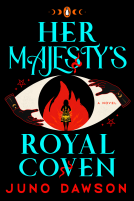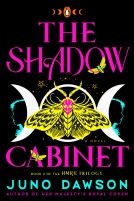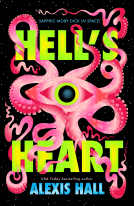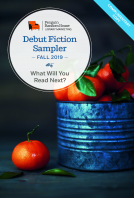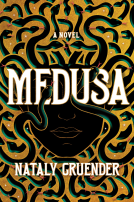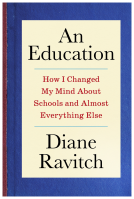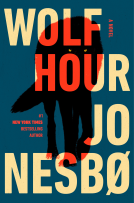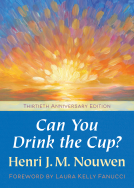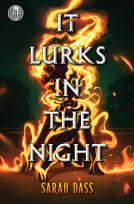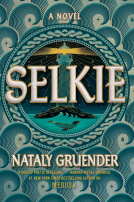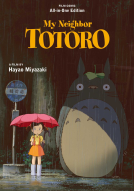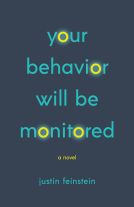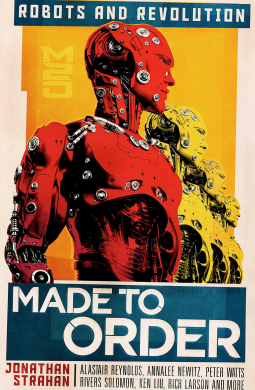
Made to Order
Robots and Revolution
by John Chu; Daryl Gregory; Alice Sola Kim; Rich Larson; Ken Liu; Carmen Maria Machado; Ian R. Macleod; Annalee Newitz; Suzanne Palmer
This title was previously available on NetGalley and is now archived.
Send NetGalley books directly to your Kindle or Kindle app
1
To read on a Kindle or Kindle app, please add kindle@netgalley.com as an approved email address to receive files in your Amazon account. Click here for step-by-step instructions.
2
Also find your Kindle email address within your Amazon account, and enter it here.
Pub Date Mar 17 2020 | Archive Date Mar 10 2020
Rebellion | Solaris
Talking about this book? Use #MadeToOrder #NetGalley. More hashtag tips!
Description
100 years after Karel Capek introduced the word with his play R.U.R. “Robots" are an everyday idea, and the inspiration for countless stories in books, film, TV and games.
They are often among the least privileged, most unfairly used of us, and the more robots are like humans, the more interesting they become. This collection of stories is where robots stand in for us, where both we and they are disadvantaged, and where hope and optimism shines through.
Featuring stories by Brooke Bolander · John Chu · Daryl Gregory · Peter F. Hamilton · Saad Z. Hossain · Rich Larson · Ken Liu · Ian R. Macleod · Annalee Newitz · Tochi Onyebuchi · Suzanne Palmer · Sarah Pinsker · Vina Jie-Min Prasad · Alastair Reynolds · Sofia Samatar · Peter Watts
Advance Praise
“Breath-taking, staggering, sublime.” Tor.com
“A stand-out collection that should be of interest to any admirer of short fiction, regardless of genre…” The Guardian
“Short stories have been the lifeblood of science fiction since HG Wells, and Solaris are maintaining the tradition.” Financial Times “Jonathan Strahan’s Infinity books stand with the very best original anthol ogy series ever in the field.” Locus
Available Editions
| EDITION | Other Format |
| ISBN | 9781781087879 |
| PRICE | $11.99 (USD) |
| PAGES | 400 |
Average rating from 35 members
Featured Reviews
 Reviewer 418715
Reviewer 418715
Made To Order: Robots and Revolution contains sixteen stories of varying length. All the pieces are original to the collection and cover a variety of themes associated with artificial minds and bodies.
Before we proceed, know this. As much as I love the concept of short fiction, I know from experience that anthologies contain excellent stories, bad stories and everything in between. Because of this, I’ve never given more than four stars to an anthology and I don’t suspect I’ll ever do. And yet I’ve almost done it here.
The anthology revolves around the theme of robots-the creations that can look and behave like us but aren’t like us. They can save humanity or doom it. Philosophers, entrepreneurs, ethicists disagree on this one.
The stories show a remarkable range both in ideas and in tone. The worlds we experience are vivid and compelling. Made To Order: Robots and Revolution is a well-balanced collection of serious and lighthearted, introspective and explosive, realistic and uncanny. Above all, though, it’s smart. Readers interested in artificial intelligence and roboethics will have plenty to think about.
One of the lightest stories of the bunch is the anthology’s opener, A Guide for Working Breeds by Vina Jie-Min Prasad. A robot communicates with his mentor. It works a shitty job, overfeeds a possum and loves Corgis. It tries to get better at cooking despite the lack of natural talent. Its mentor, on the other hand, is as badass as its nickname (Constant Killer) suggests. Fast, funny, and endearing. Another story that’s not afraid to be pulpy is Saad Hossain’s The Endless. An embittered AI who didn’t get a promotion to control a space station wants revenge. If you thought that boring work in a cubicle would satisfy it, you were wrong. Very wrong.
On the other side of the spectrum, you’ll find more introspective and intimate stories. In Fairy Tales for Robots, Sofia Samatar examines some of our myths and tales (Sleeping Beauty, Pinocchio, and more). Ken Liu’s Idols shows how the use of simulacra can help lawyers win legal debates but it goes much deeper in its analysis of what makes us “us”. A stunning piece with both solid intrigue and emotional intimacy.
Other stories that struck me include Peter F. Hamilton’s Sonnie’s Union which features a protagonist with peculiar skills. It has a vicious twist that brings everything into focus makes me want to read more about her. Brooke Bolander’s A Glossary of Radicalization shows readers possible beginnings of a possible rebellion. It’s fast and furious.
As for the weaker stories, The Hurt Pattern by Tonye Okanyebuchi didn’t click with me. I’ve heard a lot of good things about this author and I’ll certainly try his other works but his position on my TBR list dropped. Though his short story packs a nice twist, I didn’t enjoy the social commentary. I believe it’s the least universal story in the anthology although I suspect US citizens struggling with student loans will see it in a different light than me.
On the whole, Made to Order is excellent. It contains plenty of memorable stories exploring fascinating topics.
ARC through NetGalley
An impressive panoply of voices offer well-written explorations of the science fiction genre. This book is an ideal assembly for readers (like me) who love good science fiction.
 Paul S, Reviewer
Paul S, Reviewer
This is a great book with many stories that will engage and interest the reader, most anthologies have a tendency to good, not so good and downright filler stories this book (for me) had only good and better
This was an enjoyable collection of short stories about robots, although each looks at robots in a different and sometimes surprising light. It was great to see a compilation of stories from so many disparate authors who bring such different view points to a similar theme, some who I recognized and others I didn't but will be looking up more of their work.
Top reads for me were: The Translator by Annalee Newitz, Bigger Fish by Sarah Pinsker, and Chiaroscuro in Red by Suzanne Palmer. Each of these three struck me as unique and remarkable in some way. There were a few that I didn't find quite as interesting, but anthologies petty much always have ups and downs. Thankfully, while there were a few that weren't my favorite, none of them dragged the collection down and I'm sure there is a story in here for everyone.
Thank you to the publisher for an ARC through Net Galley in exchange for an honest review.
A very solid collection with some real standouts from a truly impressive lineup of both rising stars an well established masters, many of which I'm already a big fan of. Obviously the overarching theme here is robots. However, many of the stories focus on sentient AI rather than robots per se, and a few go even further afield into human/robot hybrids, hardcore bioengineering and some bizzare things that are hard to classify. Highlights for me were the stories by Peter Hamilton, Alastair Reynolds and Brooke Bolander, with honorable mentions to Daryl Gregory and Annalee Newitz.
My thoughts on some of the individual stories:
A Guide for Working Breeds by Vina Jie-Min Prasad (2.0) - Dog loving robots working menial jobs providing emotional support to each other. Kind of cute, but not much to sink your teeth into.
Test 4 Echo by Peter Watts (3.0) - A semi-independent component on an autonomous undersea drone on one of Jupiter's moons shows signs of emerging consciousness after sustaining damage. Watt's mastery of the science makes this read like a realistic account of the events from the perspective of the mission commander.
The Endless by Saad Z. Hossain (3.0) - A snarky, outmoded AI gets re-purposed and sold into indentured servitude where he plots revenge on his new corporate overlords. It sounds dark, but has a humorous edge.
Brother Rifle by Daryl Gregory (4.0) - Examines the cost of war on soldiers where humans are a small, but still crucial part, in making life or death decisions using highly automated, semi-intelligent weapon systems. With killing as easy as pushing a button, is there any room for morality or for exercising personal judgement? Gregory masterfully portrays the conflicting emotional states and depths of despair of the solider portrayed here as he gradually comes to terms with his sense of personal responsibility.
Bigger Fish by Sarah Pinsker (3.0) - Whodunit murder mystery with robots and a human PI.
Sonnie's Union by Peter F. Hamilton (5.0) - Wow! Hamilton crafts an intense, dark world of unimaginable bioengineering wonder and perversity with a kick ass cyberpunk vibe and non-stop action. Plus an ending that will knock your socks off. It can be a bit disorienting initially as it feels like you're being dropped cold right into the middle of things. No robots to speak of, but easily the highlight of the collection for me!
Polished Performance by Alastair Reynolds (5.0) - A hilarious, and also bit chilling, departure as a ship full of sentient yet somewhat naive robots try to cover their behinds, so to speak, for a *slight* mishap that resulted in the death of all the humans aboard. I've read a ton from Reynolds and have not seen him do humor before, but if this is any indication he should definitely do more!
An Elephant Never Forgets by Rich Larson (3.0) - Very strange and confusing. It seems like a very cool setting, and I like the 2nd person narration, but I couldn't really make heads or tails of the story or even if it involves robots to any extent.
The Translator by Annalee Newitz (4.0) - Capricious and enigmatic AIs who just want to be left alone, but they may have one parting "gift" for humanity before they go off on their merry way. Told from the point of view of a "translator", one of only a few humans chosen, and capable of, communicating with the AIs in their cryptic and obscure languages and codes.
Chiaroscuro in Red by Suzanne Palmer (3.0) - In an automated proxy workforce economy, i.e. robots owned by and working in place of humans, a college student attempts to repair his factory worker robot so he can eke out some profits from its labor before it gets scrapped. A charming, kind of nostalgic story that's something like a modern day Clifford Simak might write.
A Glossary of Radicalization by Brooke Bolander (5.0) - Incredible story of robot AIs who are built inside organic bodies modeled on human physiology. They experience all the same physical needs and sensitivity to pain as humans, seeing it as a way for humanity to retain control. They yearn to cast off their human owners and the burdens of organic existence that they've been saddled with.
 Reviewer 230978
Reviewer 230978
Made To Order, Robots and Revolution, Jonathan Strahan Ed.- A collection of 16 diverse tales of robots in their interaction with humans and among each other. Lots of well known writers with a few new faces to add to the originality. There have been so many tales of robots, over the last hundred years especially, that you would think this storyline was played out, but creative minds still plum the depths machine interaction( see Murderbot or Ancillary Justice). In Sonnie's Union by Peter F. Hamilton, We are asked the question What is Human, and receive a stunning reply. John Chu gives us Dancing with Death, about a robot sorely afraid of loosing his sentience and becoming an unthinking machine, while he skates to glory on the rink. Alastair Reynolds uses humor in Polished Performance, about servitor robots trying to emulate their human masters in times of turmoil. Also on board are, Peter Watts, Ian R. MacLeod, Suzanne Palmer, Daryl Gregory, and many more. As with most anthologies, some stories are better than others, but no name calling out here. As a whole very good with some standout selections.
Short stories – not quite as in microfiction, but many taking fewer* than ten minutes to read – on the theme of robots and revolt, as selected by Jonathan Strahan, an editor I don't seem to rate as highly as a lot of people do, but whose collections never fail to include at least some fun and/or thought-provoking material. Listing the Daleks and Wells' Martians as robots in the introduction is not a great start, but as soon as we're into the fiction proper the book evolves into something far better, with Vina Jie-Min Prasaad's charming chat logs in which, whether by conspiracy or cock-up, a maid-droid finds itself being mentored on how to robot by a murderbot. There are definite echoes of Cat Pictures Please, by way of a common failure mode for real-world AI; it ends up as a rollicking comedy about the benefits of unionisation, finding plenty of space for raccoons and blowing shit up along the way. I loved it. Demonstrating the collection's versatility, despite its set theme, the next story is by Peter Watts, so that rollicks rather less; stories about robots achieving consciousness work a little differently when written by a pessimist who, theoretically at least, treats consciousness largely as a system error resulting in decreased performance. But whether it's his conscious mind in charge of his writing, or other processes which just let it think it's the boss, he does reliably come up with very good ways of describing the outside world: "Enceladus was Saturn's own personal stress ball".
Obviously they can't all be winners: the Ken Liu story will feel very familiar to anyone who knows Black Mirror. Sarah Pinsker, on the other hand, uses several very well-worn components in her murder mystery, but with an end result that's both new and rather heartwarming. Even some authors I don't normally go for won me over; there's a fun Alastair Reynolds story, and I think the first thing I've ever finished, much less enjoyed, from Peter Hamilton. The latter is one of the entries which stretches the anthology's theme closest to breaking point, but then I suppose when part of the theme is about not respecting the rules, that's only to be expected. Elsewhere, topical applications are more obvious, whether that be the AIs that took our jobs themselves ending up at the sharp end of capitalism, or an attempt to bypass a veteran's (realistically drawn and fairly well-researched, so far as I'm aware) brain damage. Still, there's also room for Sofia Samatar to take the current vogue for retold fairy tales and apply that to a Gepetto hoping to give her creation a little illicit extra information, coded as fable. Overall one is left pondering, wouldn't it be nice if, instead of the robots enslaving humanity, they really did just turn on the current oppressors instead?
*Fewer than ten minutes? Less than ten minutes? Technically it should be the former, but 'ten minutes' is also a thing, isn't it, a blob. For all that I normally enjoy the finer distinctions of language – I genuinely think the world would be a markedly different and better place if 'believe' were two different words like it ought to be – I increasingly I feel like less versus fewer is an absolute blind alley of a distinction.
 Joseph K, Reviewer
Joseph K, Reviewer
Jonathan Strahan's latest themed anthology, "Made to Order: Robots and Revolution", arrives in the neighborhood of the 100th anniversary of Karel Capek's famous play "R.U.R.", where we were introduced to the term robot. But R.U.R. was not the first work to include the concept of an artificial being, an automoton, an AI, that is meant to serve man. The concept of artificial entities made in the likeness of humans has been around for a long time. And while most people might point back to Frankenstein's Monster as one of the first examples of this kind of creature, Strahan points out in his Introduction "Makingthe 'Other' We Need", that the concept goes a lot further back than that.
But we're in the present, and "Made to Order" contains 16 original stories by some of the top writers in science fiction today. And while we may think of any of Asimov's creations, or Robbie the Robot, or the Robot in "Lost in Space", or the two endearing mechanical creatures in the Star Wars movies as the prime example of robots, the creations presented here are not only a little different, their stories are a little different.
My favorite in the collection is Ian R. Macleod's "Sin Eater", in which a robotic sin eater goes to the Vatican to perform his duties on the last living pope, and indeed probably one of the last physical humans, as most have uploaded themselves into the next phase of existence. Macleod's tale takes the reader inside not only the personal history of the character of the pope, but into the process of sin eating. I was blown away by the twist at the end, and as a person brought up Catholic I did not see it coming but it sure hit me pretty hard.
Rich Laron's "An Elephant Never Forgets" is a brutal tale of an artificial construct being manipulated to, well, help a pretty nasty guy do some pretty nasty things. The central character is fully aware that someone has done something to him, but he doesn't know how, and he doesn't know why. As the story unfolds, we realize that like many other robots, he was just being used.
Alastair Reynolds (one of my current favorite authors) gives us "Polished Performance", a tale about a group of robots who try to resolve the problem that a good deal of the humans on their ship for an interstellar voyage have perished in their cryogenic containers. It's a nice little story of class differences within the group of robots and how one of the lowest class robots comes up with a solution to save the day. It's not a deep story, but it does try to make the point that even robots can divide themselves into classes.
A story that I didn't much care for as I was reading it, but upon reflection realized is a truly powerful story, is Sofia Samatar's "Fairy Tales for Robots". A human is preparing a robot for awakening and is telling that robot human fairy tales in a way that relate to the lives of robots. A really sneaky story that took awhile to hit me, but once it did I was bowled over.
Another story I liked a lot was Suzanne Palmer's "Chiaroscuro in Red", about a college student who is given sole ownership of a robot by his parents - robots are typically owned by conglomerates - and his efforts to repair the robot himself and make it useful even though the model is obsolete. It's a fun story.
I also enjoyed Sarah Pinsker's (I seem to always enjoy a Sarah Pinsker story) "Bigger Fish", the story of a PI looking into a murder of a wealthy businessman only to discover that the murderer was definitely not someone he expected, and in fact the whole thing is downright sinister at the end of it all. It gave me the creeps.
Annalee Newitz gives us "The Translator", a story of a human being who has the gift of being able to talk to AIs. The AIs are leaving, but before they leave they give the human race an invaluable gift. The idea that the AIs will help us, but only if we work to understand their message, is a nice one, and a good lesson for humanity.
Saad Z. Hossain gives us "The Endless", about an AI that has been sold and re-purposed and is out to get revenge on his new bosses. It's a well told and funny story about revenge and rebellion, perfect for the theme of this anthology.
All the stories in the book are terrific. There are stories in the anthology byt Vina Jie-Min Prasad, Peter Watts (a favorite of mine, with a good one here), Daryl Gregory, Tochi Onyebuchi, Ken Lui (who never disappoints), Peter F. Hamilton (yet another favorite of mine) and John Chu. Many of these authors are award winner, and those that aren't should be. I'm probably drawn to Strahan's anthologies because his tastes are similar to mine, and once again he does not disappoint. This is an outstanding anthology by one of the leading short fiction editors of our day. Fans of robots - and all related artificial constructs - will enjoy it.
This collection of stories is about robots, AIs, and what happens when they decide that they are servants no longer. It combines big names (Alistar Reynolds and Peter Hamilton for example) with authors that are (to me) less known. Likewise, and expectedly in a short story collection, the stories themselves run the gamut from excellent to forgettable.
My favorites were "A Glossary of Radicalization", "Chiaroscuro in Red", and "The Endless". These two very different tales both really seemed to encapsulate the theme of robots and revolution.
In The Endless, an AI tasked with running an airport seeks vengeance when sold into low- level servitude. The humor and well-thought-out action scenes were the highlights.
"A Glossary..." looks at how language and behaviors are used as controls in robots and in society. The message of teaching beyond what you believe you are capable of was what resonated with me in this one. The main character was flawed, and completely understandable.
"Chiaroscuro in Red" looks at the future of economy and explores why we work and what that means about us as people.
If you enjoy scifi and short stories, you will find at least a couple of selections here that will entertain you and a few that will make you think about the connected world we are increasingly inhabiting.
Thank you to the publisher and Netgalley for the opportunity to read this book.
Made to Order is a science fiction anthology with short works by some of the best SFF/speculative fiction authors currently writing today. Every story was thought-provoking and thematically compelling, even if I preferred some stories to others. Due to its breadth and scope, it’s an anthology that deserves to be an essential part of every sci-fi reader’s library. Not only did I enjoy every minute of this read, but I was always excited to begin the next story, which, to me, is the sign of an excellent anthology.
1. A Guide for Working Breeds by Vina Jie-Min Prasad – 5 stars:: I adored the narrative voice on this story, and felt so connected to the characters. It’s written in a chat-type message stream between two robots, and also includes fun bits like the online search logs for the characters. This story is charming and witty, and was an excellent way to start the anthology.
2. Test 4 Echo by Peter Watts – 2.5 stars:: This story is much more of hard sci-fi in nature, which is not usually my cup of tea. I thought this story was well conceived thematically, and was an interesting take on the when-is-an-AI-a-lifeform theme. Although I found the story interesting thematically, I didn’t connect fully with the characters or the plot.
3. The Endless by Saad Z. Hossain – 4.5 stars
The Endless was such a fun story, and has such an unexpected narrative voice. This story is a delightful robot version of Office Space, but with the authorial voice of Martha Wells’ Murderbot. Plus, this story had the best quotes: “They ask me how I’m fitting in- I tell them its a soul-crushing job and we are currently sitting ten floors underground with no hope of ever seeing the sky,” our main character-robot says over cake at his work anniversary party.
4. Brother Rifle by Daryl Gregory – 2 stars:: This was not a stand-out story for me. It’s a very dark short story, was difficult for me to read at times, and had a fairly unsatisfying conclusion.
5. The Hurt Pattern by Tochi Onyebuchi – 3.5 stars:: Thematically, this story was so on point for me. It’s a progressively nihilistic view of the future with big corporations and big banks running the show. It was one of the only sci-fi takes on police brutality against people of color that I’ve read, and I thought it was very effective. Oh, and it discussed the weight and oppression of student loans to boot. All that being said, the story is dark, and could be quite difficult to read. I urge caution if any of these themes might be triggering for you individually.
6. Idols by Ken Liu -5 stars:: After reading this story, I now want to read anything and everything by Ken Liu. The story was brilliantly existential, and had such a novel take on what is, actually, a true “self.” This was definitely one of my favorites of this bunch.
7. Bigger Fish by Sarah Pinsker – 4.5 stars:: Bigger Fish was a fun story, and was a nice read after the heaviness of the few entries preceding it. It tells a noir-esque story of a PI investigating the death of a filthy rich man who was believed to be murdered while he was alone in his smart house. It was short, to the point, and I would have loved it to be a little longer and more fleshed-out.
8. Sonnie’s Union by Peter F. Hamilton – 2 stars:: This was not my favorite. It’s another hard sci-fi story, and I, again, was just unable to connect.
9. Dancing with Death by John Chu – 5 stars:: This was another brilliant stand-out in the collection. It was such a beautiful story of a robot with a failing battery and her friend/maybe more-than-friend who tries to fix her. It was remarkably tender, and a different sort of robot story than we usually see.
10. Polished Performance by Alastair Reynolds – 5 stars:: I think this was my favorite of the collection. The main character here is Ruby, a squat little bot who polishes the floors on her spaceship. Her processing engine doesn’t function at as high a level as the other robots, but she more than makes up for it in character and heart. This story was amazing and so much more than I was expecting.
11. An Elephant Never Forgets by Rich Larson – 1 star:: This is my only one star of the anthology. I really didn’t jive with this one, and it felt out of place in the collection. It was very graphic and had some pretty disturbing images.
12. The Translator by Annalee Newitz – 3 stars:: This was a really cool story, and I, as a previous English major who loved linguistics, enjoyed the concept quite a bit. It was short, sweet, and just enough.
13. Sin Eater by Ian R. MacLeod – 2 stars:: There were some really compelling themes here – particularly the idea of religion in a world devoid of humans. It wasn’t my favorite story of the collection, but I thought it was compelling and would be a better fit for other readers.
14. Fairy Tales for Robots by Sofia Samatar – 2.5 stars:: I enjoyed these fairy tales, which are told to a “child” robot. The reason for the lower star rating here is purely because this wasn’t my my favorite narrative style, which made it difficult for me to connect to the authorial voice.
15. Chiaroscuro in Red by Suzanne Palmer – 5 stars:: This is the story of a college student who is given a robot by his parents for his twentieth birthday. There are multiple catches, though. 1) The robot does manual labor and lives at a manufacturing plant, and 2) his robot is old and should probably be decommissioned. I thought this story was fascinating economically, and I really related to the characters. It was fun, compelling, and thoughtfully unique to the collection.
16. A Glossary for Radicalization by Brooke Bolander – 5 stars:: Robo-revolution, as my husband and I coined while playing the amazing Detroit: Become Human video game, is such a fun concept and is so well done here. This is a cautionary tale, of sorts, for what can happen when we make robots in our own image, and when we give them our own emotions, desires, and urges. A perfect end to the collection.
My ratings for each story averaged together is about a 3.6, but my reading experience for these stories collectively is much higher, closer to a 4.5/5. And, honestly, I haven’t read this many 5 star short stories in such a long time. This was a beautiful collection, and I can’t wait to pick up a physical copy for my collection.
Made to Order releases on March 17, 2020. Thanks to the publisher and Netgalley for providing me an eArc of the anthology in exchange for review!
(I know there could be some mistakes in this review. I’m trying to improve my English, thanks)
I received this book from Negalley in exchange for an honest review, so here we go:
Robots. A fascinating issue, but I must note in advance that half the stories - more or less- are about IA or artificial persons (by byologic, industrial and unknown procedures); that is, not as we understand the term, as a machine that operates with humanlike skills.
Briefly I review each of the stories:
A Guide for Working Breeds by Vina Jie-Min Prasad. The author repeats the style shown in the great Fandom for Robots, that is, a curious robot cyber-conversation. A curious mix with cybernetic IA logics and human imitation. For me it was difficult to understand all the argot.
Test 4 Echo, by Peter Watts. In this tale he deals with a robot IA in the search for subaquatic life in Enceladus and about moral dilemmas. Typical of Mr. Watts, a story of disappointments that does not disappoint.
The Endless, by Saad Z. Hossain. An AI vengeance. The development is a bit tricky but it was a funny read:
Mi name is Suva. Like the airport, Suvarnabhumi. An odd name, you say? Because I am the airport, motherfucker.
Brother Rifle, by Daryl Gregory. A story about how an AI can help a marine do his work and then how the doctors with the aid of another one tries to redeem him.
The Hurt Pattern, by Tony Onyebuchi. A police robot shot a thirteen year old black boy. Why? It is more complicated that it could seem.
Idols, by Ken Liu. Idols wonders about the possibility that someone can construct a simulation of a persona based on all the feeds shared in the cloud (that is, social redes, media, works, etc.). This can be useful, for example, to interact with the deceased loved ones. A good story. Note: I read before about this captivating idea in a catalan written novel, El somriure d’un Eco by Jordi Gimeno.
Bigger Fish by Sarah Pinsker. The author of the excellent And Then There Were (N-One), shows here an asimovian crime story. Very good, one of the best in the book.
Sonnie's Union, by Peter F. Hamilton. A kind of chimera organic beings created for clandestine fighting.
Dancing with Death by John Chu. Planned obsolescence, but robots want to work, love… and ice-skating. Good.
An Elephant Never Forgets, by Rich Larson. Bioengineered humans, Nexus 5 style. A person who does not remember anything wakes up in a kind of asylum...
The Translator, by Annalee Newitz. A future job: to translate IA messages to an understandable human language. By the author of Autonomous.
Sin Eater, by Ian McLeod. One of the best stories in the book. The last Pope and a robot. Amazing.
Fairy Tales for Robots, by Sofia Samatar. If you wanted to give humanity to a robot that is about to be born, how would you do it? Reading they fairy tales. A very well thought out story.
Chiaroscuro in Red, by Suzanne Palmer. Very good! In a future, the rich do not own workers or slaves, they own robots. The more robots, the more wealth. Stewart is a short on money student who receives a second-hand robot as a birthday gift from his parents. What can the robot do for Stewart?. What can he do for the robot?
A glossary of Radicalization by Brooke Bolander. Artificial persons, cyberpunk & radical thinking.
Overall it is a good anthology, although half of the stories are not strictly about robots, and neither strictly about revolution as indicated on the cover. However, in one way or another, the two issues are sufficiently addressed. For me, it was a good way to read about this fascinating topics and discover unknown authors (at least for me), and also to meet some of those I already know.
Thanks to Solaris and Netgalley for this book. It will be published on March 17.
Made to Order is a more than solid collection of science fiction short stories, with a focus on robots, including A.I. and digital bodies. I thought the editor, Jonathan Strahan did an excellent job of compiling stories that run the gambit on the diversity of stories within science fiction, even within the scope of robots. The majority of the stories I thought were well-developed, and didn't seem like B-side stories for the authors. There are some really well-known authors, and others I didn't know, which helped give me the reader, a good balance of expectations and surprise. I felt like I learned quit a bit about the possibilities of storytelling to help me understand the complexities of what it means to be a robot.
The only thing I would've like to see was one of these authors of this text re-tell an Asimov, or a classic science fiction story in their way, since his Laws of Robotics are mentioned several times. Overall, readers will have a wonderful time delving into these robot-centric short stories, and will gain a greater appreciation for the fantastic science fiction authors currently writing, and those who may not be as well-known.
Public Libraries, you should be adding this is your Science Fiction collections.
 Jessica J, Reviewer
Jessica J, Reviewer
A disclaimer: I'm not the biggest fan of short stories, and have mixed luck with anthologies because of this. Made To Order, however, is an exception to this rule - there are some really strong stories in here. I greatly enjoyed this anthology (obviously, a reader will respond better to some stories than others in a collection - but this had a very high thumbs-up rate from me). The only downside to this collection is that it's made me TBR list even longer - so many of the authors are people whose full-length work I'd been meaning to check out, and hadn't yet gotten round to: on the basis of these stories, I'm now even keener to read more of their work.
 Ernest L, Media/Journalist
Ernest L, Media/Journalist
Made To Order: Robots and Revolution Edited by Jonathan Strahan 3/17/2020 Rebellion
I often talk about science fiction as a conversation, and while his wasn’t the first voice, Asimov’s contributions remain the most influential in the genre. Also, he was born 100 years ago this year, so a robot anthology seems, well, Made To Order, and with it, Strathan has added significantly to the conversation (BTW…).
Editor Jonathan Strahan has assembled the A-Team of contemporary science fiction writers to add to that conversation, and they’ve all got something interesting to contribute. Robots have been stand-ins for slaves, oppressed workers, and other people without agency since Karel Čapek wrote R.U.R, the play where he gave us the word “robot” back in 1920, which I’ve already noted was the year Issac Asimov was born.
In this collection of new stories, robots still play the role of representation, but now they’re representing their not-so-distant future selves in the mix, and the question When will robots be human? turns out to be When we treat them as badly as we treat everyone else. Sometimes things go better for us (or them), sometimes worse, but it’s a new sort of Turing test that these stories pass easily. The authors who contributed are among the best thought experimenters writing today, including Peter Watts, Daryl Gregory, Ian R. MacLeod , Annalee Newitz and more (including one of my favorite new writers, Sarah Pinkser). It’s a diverse and well-rounded group, and my only regret is that Martha Wells (The Murderbot Diaries) isn’t included.
The stories are universally excellent, but you shouldn’t miss Strathan’s introduction, which does a very good job of looking back over the genre and pointing the way forward.
If You Love Robots, then the anthology, Made To Order: Robots and Revolution, was Made for You!
A Guide for Working Breeds by Vina Jie-Min Prasad ☆☆☆
A feel-good story about a robot mentoring another. There are dogs and contract killers in it too. I liked it but the characters kept changing their handles — you read their chats with each other. At times, it got confusing as to who was saying what. But other than that, a good story with a sweet ending.
Test 4 Echo by Peter Watts ☆☆☆
Will we be doing AI a favor by slapping a label of sentient beings on them? Or is it just a way of keeping them under our thumb? A team of underwater researchers finds out.
The premise is akin to that for the story, A Glossary for Radicalization by Brooke Bolander. And I loved them both.
The Endless by Saad Z. Hossain ☆☆☆☆
AI vengeance at its snarkiest and sassiest. When even some robots who overtook human jobs become redundant, an airport AI is bundled off to a small desk in a dingy office. But he isn’t going down that easily.
I loved everything about this one, except, when at the very end, things got boring and unsurprising.
Brother Rifle by Daryl Gregory ☆☆
A soldier caught in the jaws of PTSD gradually begins to come back to himself with the latest treatment that technology has to offer. While the horrors faced by people on both sides of a war remain a reality, the story didn’t blow me away.
The Hurt Pattern by Tochi Onyebuchi ☆☆
AI police brutality against black teenagers is the focus of this story. And even though incidents like this are quite common in the real world — and more than horrifying –the story didn’t make the concept its own.
Idols by Ken Liu ☆☆
We step into a world where law firms use NLP to create simulacra of the jury and the judge to win cases. Having sampled a reasonably sized portion of Liu’s short fiction recently and liked it, I found this story okayish.
It would be fun to see what Mike Ross and Harvey Specter would make of this tool, though.
Bigger Fish by Sarah Pinsker ☆☆☆
A scum of a wealthy businessman dies and his son hires a PI to solve his murder. Consider the locked-room mysteries by Agatha Christie and Enid Blyton. Then combine their best elements with Asimovian robotic sci-fi. And that’s what this story is, which goes to say that I liked it. But the ending seemed too familiar to surprise me. So, 3 stars it is.
I’d like to read more by this author, though.
Sonnie’s Union by Peter F. Hamilton ☆☆☆☆
I encountered this awesome short while watching Love, Death, and Robots on Netflix. At that time, I thought I loved it. But then, I read it as part of this anthology and I more than loved it! See, they don’t really show the ending the way it is written. They couldn’t have.
Imagine a world where people can merge with monstrous creatures and then have gladiator-style bouts. It’s like Altered Carbon but a monster’s the sleeve. Anyway, we see things from the POV of such a fighter and she’s let say more than invested in the monsters. When the government shuts down the fights, she goes on an avenging spree. It is the way she does the said avenging that takes this story to another level of awesomeness.
Dancing with Death by John Chu ☆☆☆
A penniless robot who cannot afford to keep existing and a fixer-upper who refuses to let that happen. The joy that the robot finds in ice skating and the connection between the two characters will tug at your heartstrings.
Polished Performance by Alastair Reynolds ☆☆☆☆
I loooooved this and wanted to adopt all the robots in it — well, except for Mr. Snooty Pants. So, a ship journeying through space malfunctions and kills most of its human passengers. The good news is that the robots on it to serve the humans have things in hand. The bad news is that they’re awful at being human! Hilarious all the way and a tad sad at the end.
An Elephant Never Forgets by Rich Larson ☆☆☆
Oh, this one was bad. Not in the way that it wasn’t a good story. It was hits-you-in-the-gut kinda bad. An individual wakes up in an asylum without an inkling about who they are, etc. As you read, you slowly understand that the asylum could be any one of the horror houses from the past where children were detained and “uncles” would visit them. Except this one exists in the future and features cloning.
So, while I love-hated the story, I would have liked a clearer conclusion — even if it was just to tell myself that the kids were going to be okay.
The Translator by Annalee Newitz ☆☆
We’re only as useful to this world as our jobs. Or, that is the theme of this story. A translator who interprets the messages of AI is the main character. The AI suddenly announce they’ll be leaving this world. What good would he be if that happened?
I found the lengths that the AI went to for making their conversation more “human” funny.
Sin Eater by Ian R. MacLeod ☆☆☆
A robotic sin eater goes to meet the last surviving human and upload them to the post-singularity digital world. Loved the descriptions and the way the story is told. The ending though turned me off. But then if we had the Pope in the story, crucifixion shouldn’t be a stretch.
Fairy Tales for Robots by Sofia Samatar ☆☆☆
I am adding a whole star for all the effort that probably went into thinking up the premise of this story. In it, we read about an inventor telling fairy tales to her invention — a robot — right before it wakes up. Only, the stories are all parables about life for AI. While I appreciated the concept, the style of telling didn’t draw me in much.
Chiaroscuro in Red by Suzanne Palmer ☆☆☆☆
A student comes into the ownership of a factory-working robot. Since his parents spent their savings on the gift, he decides to keep it. In a manner that reminds readers of Simak’s writing, he begins to care about the bot. Also features two idiot gamers and a voice of reason.
A Glossary for Radicalization by Brooke Bolander ☆☆☆☆
This one’s brutal and raw and I loved it for those very reasons. Humankind creates robots in its image just as God created man in His. The story’s about a girl robot who asks too many questions for someone who doesn’t give a fuck. In the end, she finds the answers, and she WILL share them no matter what!
Summing up, the anthology has an average of 3 stars but my reading experience was higher, so it gets a rating of 4!
I requested this book on Netgalley and I’m glad that I did!
Made to Order: Robots and Revolution is a science fiction anthology that contains 16 stories. The central theme is robots, machines, and AIs that are made to order going out of the norm which results in unexpected changes.
The stories vary greatly in length and tone. Some stories are light-hearted and humorous while others are dark and twisted. Some stories deal with socioeconomic issues while others focus on individuals.
Instead of reviewing each story, which would make this review unnecessarily long, I'll briefly talk about my highlights.
- A Guide for Working Breeds by Vina Jie-Min Prasad: The anthology's opener, which consists of correspondence and banter between a new robot and its mentor. A very fun read.
- The Endless by Saad Z. Hossain: The outdated AI of an airport loses its job, is forced to work somewhere else, and plots revenge. Serious cyberpunk vibes. Dark, yet humorous. The ending was great.
- Idols by Ken Liu: Idols are simulations of people based on their online presence shared in the cloud. They're used in many different fields, but the way lawyers use them for the court was kinda horrifying.
- Bigger Fish by Sarah Pinsker: I love murder mysteries and they're even better with robots!
- Polished Performance by Alastair Reynolds: Sentient robots on a starship face a serious problem regarding the passengers and try to cover up the whole thing. This one may very well be my favourite. It strikes a great balance between funny and chilling.
- Fairy Tales for Robots by Sofia Samatar: A scientist tells human fairy tales, albeit slightly modified, to the robot she created. Some people seem to love Samatar's prose and now I can see why.
- Chiarascuro in Red by Suzanne Palmer: A university student becomes the sole owner of a robot factory worker. A bit sad but ends on a positive note.
- A Glossary of Radicalization by Brooke Bolander: A robot girl resents humans for making robots human-like and decides to do something about it. Making robots in our image so that we can control them is probably a bad idea, right?
For those who are interested, here are the rest of the stories:
- Test 4 Echo by Peter Watts
- Brother Rifle by Daryl Gregory
- The Hurt Pattern by Tochi Onyebuchi
- Sonnie's Union by Peter F. Hamilton
- Dancing With Death by John Chu
- An Elephant Never Forgets by Rich Larson
- The Translator by Annalee Newitz
- Sin Eater by Ian R. MacLeod
Overall this is a very solid anthology and there's a story in it for everyone. Highly recommended.
Thanks to the publisher (Rebellion/Solaris) and NetGalley for providing me with an ARC in exchange for my honest opinion.
 Greg C, Reviewer
Greg C, Reviewer
I can't recall the last time I read a themed anthology that was consistently this much fun. If you've been sitting at home thinking, "The next Murderbot cannot come soon enough!", Made To Order is here for you.
In another occurrence so exceedingly rare that I cannot stress it enough, the funny, light-hearted stories in this collection are the most memorable. "A Guide For Working Breeds" by Vina Jie-Min Prasad, "Bigger Fish" by Sarah Pinsker, "Chiaroscuro In Red" by Suzanne Palmer, these all stand out for their world-building while the grimmer tales of robot revolution come off as a bit too self-consciously constructed too truly hit their marks.
If you are looking for cold-blooded robot murder though, take heart. There are exceptions on that of the spectrum as well.. "Sin Eater" by Ian R. Macleod is so weird I've already read it twice, and "Sonnie's Union" by Peter F. Hamilton shines above the rest as a wicked robot revenge action movie of story.
As with any anthology, there's a bit of sameyness that sets in. In a less packed collection, "Polished Performance" by Alistair Reynolds and "The Endless" by Saad Z. Hossain would stand out a bit more. But they're still memorable for their fun high-concepts and set pieces, and almost every story in Made To Order has something neat to offer.
Highly recommended to anyone who feels more comfortable with murderbots than humans.
 C J, Reviewer
C J, Reviewer
"You have too many books about murderous robots" says a friend, perusing my bookcase with a suspicious face.
"That does not compute.... Oops!! I meant, I fail to see how this as a problem."
"Wait. What!?!"
Messing with friends-who-think I have the personality of a sociopathic robot, aside, I love a good robot story, and holy moly does this anthology deliver!
Short stories are normally great commuting reads. The tales can be consumed in bite-sized chunks long enough to distract you from the trip and short enough not to get too engrossed in reading and miss your stop. This collection doesn't play by those rules and fit that mold. With its impressive kick-ass line up sure to impress most SFF readers, I didn't want to stop reading. It has an incredible range from creepy and surreal to hilariously brilliant. They were all equally fascinating and have introduced an amazingly diverse cast of unforgettable characters: a disgruntled ex-airport AI; a figure-skating loving robot, Dr-Moreau-esque cyborgs and an overly melodramatic and theatrical space crew. There wasn't a single story in there I didn't devour. There are several authors who have now moved much higher up my TBR pile and a few new ones I need to read more.
Recommended for fans of All Systems Red, Dan Simmons, Isaac Asimov, SFF readers
Thank you to Netgalley and the publishers for the ARC.
 Harrison S, Reviewer
Harrison S, Reviewer
Made To Order: Robots and Revolution
Edited by Jonathan Strahan
As I’ve explained before, I’m not usually a fan of anthologies. The quality and tones of the stories can be highly variable, which I find personally jarring, and one story not to my taste can make me stop reading the whole volume. When I read short stories, I always prefer single authors collections.
par.
So why did I request a eARC of Made To Order:Robots and Revolution from NetGalley?
Well, for starters, I love robots. Always have. Who doesn’t? Remember that part in the beginning of Futurama, when Fry was so excited to have a robot for a best friend because it had always been his dream? I could totally relate. As a kid I remember getting My Robot Buddy by Alfred Slote from the library and I loved the Norby books by Janet and Isaac Asimov. I wanted to BE C-3P0. Bottom line: I heart robots.
On top of that, I saw the list of contributors to the collection and I decided to take a chance. There are new stories here by authors I love, including Sarah Pinsker, Peter F. Hamilton, Brooke Bolander, and Annalee Newitz.
Peter F. Hamilton is most well known for his tomes and doorstops, not his short fiction. But that didn’t make this story, Sonnie’s Union, any less enjoyable. It was a return to his Confederation universe and was excellent, but it really stretched the idea of what is a “robot” beyond what I personally feel is the limit. The story is centered on a woman whose consciousness inhabited a body that was sort of a golem or chimera. To me, once it gets too biological, it stops feeling like a robot. Otherwise, very fun story.
Sarah Pinsker is one of my new favorite authors. I loved her debut novel, A Song For A New Day, whose near future world of social distancing following a plague and terrorist attacks doesn’t seem so implausible anymore. She wrote Bigger Fish, a detective story that, like Hamilton’s story, is excellent in spite of the lack of traditional SF robots. Instead, the robotic characters are the AIs running a smart home. This story is not to be missed.
Annalee Newitz also wrote about an AI and not a more traditional robot in The Translator. After the masterful job she did creating the robot protagonist Paladin in her debut novel Autonomous, I was very excited to see what she would do her. I was not disappointed (except for the lack of a traditional clanking robot). Her story is rich and full of heart.
I could go on about all of the other stories in the anthology, but those three were my favorites. This book is definitely worth checking out!
 Librarian 431790
Librarian 431790
I requested this ARC as some of the featured writers are amongst my favourite.
In my experience a collection of short stories is always a mix of story you will love and other that will fall flat.
The evaluation of each story is up to the reader as it depends on the taste.
On a general level I can say this was an interesting and engrossing read and I added some author to my TBR.
A good read, recommended.
Many thanks to the publisher and Netgalley for this ARC, all opinions are mine.
 Steph Z, Bookseller
Steph Z, Bookseller
Brilliant collection of scifi stories, with highlights from Vina Jie-Min Prasad, Sarah Pinsker, Saad Hossain, and Tochi Onyebuchi. Build around the theme of robots, the collection is a complex mix of perspectives that is thought provoking as well as entertaining.
I love it when an anthology is good from beginning to end. This one was 90% top notch, and the other 10% was above average. Not bad for a collection. I really enjoy robot-related sci-fi, so this particular anthology was right up my alley. My favorite stories were "Sonnie’s Union" by Peter F. Hamilton and "The Endless" by Saad Z. Hossain, and Sarah Pinsker's was the best in the book.
Readers who liked this book also liked:
L.M Montgomery
Children's Fiction, Comics, Graphic Novels, Manga, Teens & YA
Created by Hayao Miyazaki
Comics, Graphic Novels, Manga
Justin Feinstein
General Fiction (Adult), Humor & Satire, Sci Fi & Fantasy
